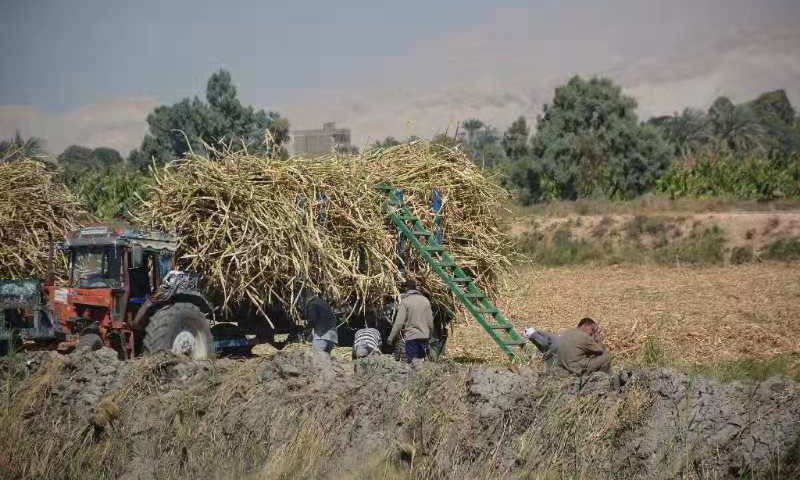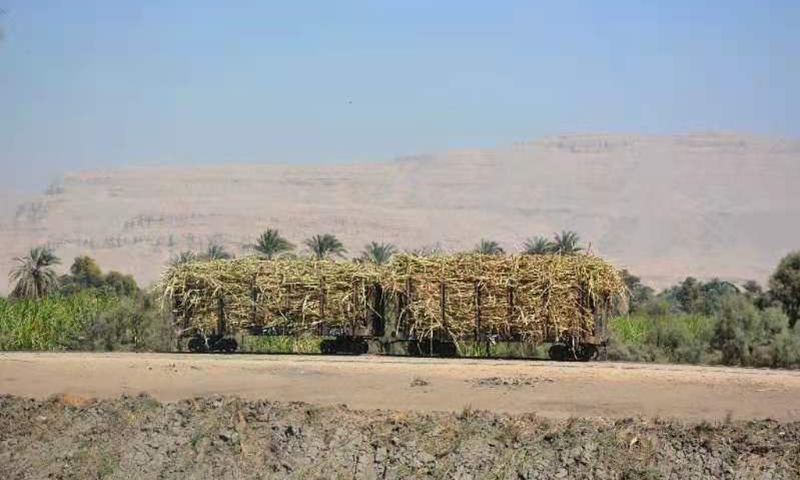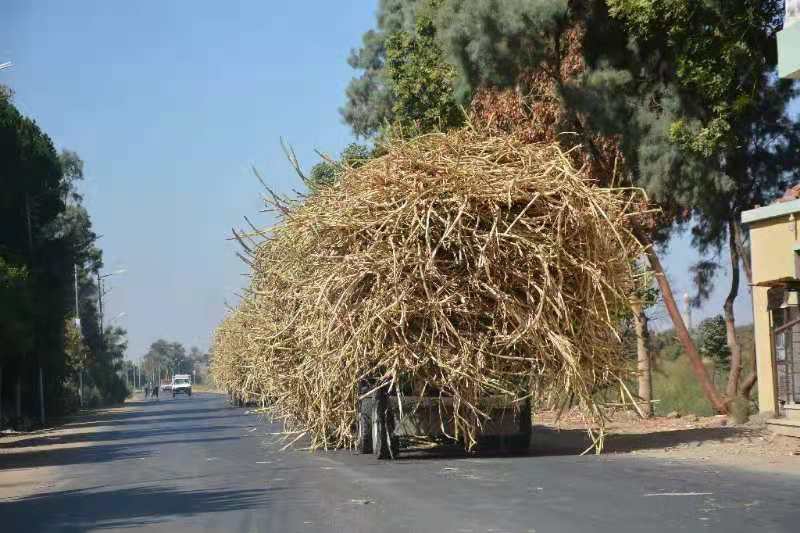
Farmers harvest and transport sugarcanes in Upper Egypt's province of Qena on Feb. 24, 2021.(Photo: Xinhua)

Farmers transport sugarcanes in Upper Egypt's province of Qena on Feb. 24, 2021.(Photo: Xinhua)

Farmers transport sugarcanes in Upper Egypt's province of Qena on Feb. 24, 2021.(Photo: Xinhua)
"Harvest of sugarcane is the season of paying the debts and meeting our needs," said Abdel Rahman Eryan, a 23-year-old farm worker.
Heading to one of the harvesting lands in Upper Egypt's province of Qena where most of the country's sugarcane crops are cultivated, Eryan said most of the young people in his village are eager for this occasion because it is their main source of earnings from January to May.
He routinely works for eight hours from early morning and makes 100 Egyptian pounds (6.4 U.S. dollars) on a daily basis.
"Harvest of sugarcane requires full attention because the tools are very sharp," Eryan explained.
Every two hectares need 10 workers to cut the crop for five days, while others collect and transfer the reaped crops to the factories, he told Xinhua.
Farouq Shaker, a sugarcane farmer in northern Qena, said cutting, piling and transferring the crops is a kind of festival for the whole family, especially the children.
After a day's work on the farm, all the family members, neighbors and friends gather at night, peeling and eating the sweet canes while listening and dancing to the traditional music, Shaker told Xinhua.
Ashraf AbdelRaziq, deputy minister of agriculture in Upper Egypt, told Xinhua that the harvest season of sugarcane is known as the time of goodness for local farmers, seasonal workers, owners of tractors, and even animals that eat the green leaves of the plant.
"The lands cultivated with the sugarcane in Qena have reached 52,608 hectares, which makes up 50 percent of the total area," said AbdelRaziq,
Alla Mohamed, an engineer of the government-owned Sugar and Integrated Industries Company responsible for the processing of the country's sugarcane, told Xinhua that 3 million tons out of the annual 10 million tons of the crop provided by the nationwide farmers come from Qena.
To produce sugar, the cane is crushed to heat and filter the juice, followed by a series of crystallization steps for raw sugar, before removing any remaining juice or syrup by centrifugation, Mohamed noted.
The state-run company produces 1.2 million tons of sugar per year, all extracted from sugarcane, said Mohamed, adding Egypt's yearly production of sugar amounts to 2.9 million tons, from either sugarcane or beet, another major raw material of sugar.
